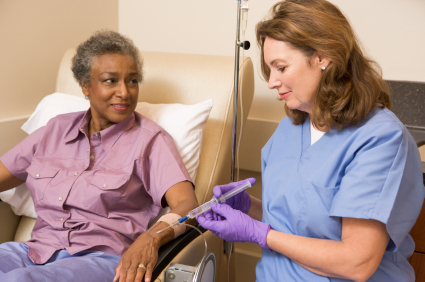Pimavanserin Prevents Relapse in Patients with Dementia-Related Psychosis

At a recent scientific meeting, Erin Foff of Acadia Pharmaceuticals Inc. described a study of pimavanserin (a selective serotonin inverse agonist/antagonist at 5-HT2A receptors) in dementia-related psychosis. Pimavanserin is currently approved in the United States for the treatment of hallucinations and delusions associated with Parkinson’s disease (PD). There is currently no Food and Drug Administration–approved treatment for dementia-related psychosis.
Enrolled patients had moderate-to-severe psychosis associated with Alzheimer’s disease, Parkinson’s, dementia with Lewy bodies, vascular dementia, or frontotemporal dementia. After a 12-week open label phase with flexible dosing and a target dosage of 34mg/day, 217 of the participants with a good response to pimavanserin were then randomized to continue pimavanserin or switch to placebo. The study was stopped early when a prespecified interim analysis revealed that pimavanserin was clearly superior to placebo. There was a more than 2.8-fold reduction in risk of relapse with pimavanserin compared to placebo in the double-blind period. Those on higher doses of 34mg/day showed a more than 3.4-fold reduced risk of relapse. Acadia will seek FDA approval for pimavanserin for the treatment of dementia-related psychosis.
Lumateperone Improves Bipolar Depression Symptoms

At a recent scientific meeting, Suresh Durgam of Intra-Cellular Therapies, Inc. reported on a study of lumateperone tosylate for the treatment of bipolar depression. Lumateperone tosylate is a mechanistically novel antipsychotic that has been approved by the US Food and Drug Administration for the treatment of schizophrenia.
In a double-blind, placebo-controlled study, the drug showed efficacy in bipolar I and II depression. In a 6-week study, 377 patients received either 42 mg/day of lumateperone or placebo, and 333 (87.4%) completed treatment. Lumateperone treatment significantly improved total scores on the Montgomery Asberg Depression Rating Scale (MADRS) compared with placebo. Item analysis revealed that 8 of 10 MADRS items improved significantly in comparison with placebo by day 29, and all items did by day 43. The largest effects were in reported sadness, apparent sadness, inner tension and reduced sleep. Durgam and colleagues concluded that lumateperone at a dose of 42mg improves a broad range of symptoms in bipolar I and bipolar II depression.
Increased Oxygen Improves Depression

At a recent scientific meeting, researcher R. Haim Belmaker reported that giving mildly to moderately depressed adults a nasal tube that delivers extra oxygen overnight for four weeks produced dramatic antidepressant effects. A total of 55 participants aged 18–65 years old were randomized to receive either normal room air (made up of about 21% oxygen), or hyperoxia (air containing about 35% oxygen). There was greater improvement on several different depression rating scales, including the Hamilton Depression Rating Scale, the Clinical Global Impression Scale, and the Sheehan Disability Scale, among those who received hyperoxia than among those who received normal air.
According to Belmaker, 69% of the patients who were treated with oxygen-enriched air improved on the CGI scale, compared to only 23% patients who were treated with room air. Limitations of the study were its small sample size and the lack of a clear biological mechanism for the effects of increased oxygen.
Childhood Physical Abuse Predicts Response to IV Ketamine

At a recent scientific meeting, researcher Alan Swann reported the results of a study of intravenous ketamine in people with treatment-resistant depression. The 385 participants, who received four infusions of IV ketamine at a dosage of 0.5 mg/kg, could be grouped into three based on their type of response to the treatment.
One group had moderate depression at baseline and showed little change. A second group with severe baseline depression also showed minimal improvement. A third group who also had severe baseline depression had a rapid and robust antidepressant response to the treatment. This group had high scores relating to physical abuse on the Childhood Trauma Questionnaire (CTQ), but did not differ on other clinical variables. Swann and colleagues concluded, “Our outcomes show that IV ketamine should be considered as a primary treatment option for adults presenting with severe, treatment resistant depression and a self-reported history of childhood physical abuse. IV ketamine may not be as effective for moderately depressed individuals irrespective of childhood maltreatment.”
Sunovion Drug in Development Targets 5HT7 and D2 Receptors to Treat Bipolar Depression

At a recent meeting, President and CEO of Sunovion Pharmaceuticals Antony Loebel presented the results of a recent double-blind, placebo controlled study of a drug in development for the treatment of bipolar depression, currently known as SEP-4199. The drug has a fixed ratio of 85% aramisulpride and 15% esamisulpride that target serotonin 5-HT7 receptors and dopamine D2 receptors, respectively. The drug was optimized to amplify the antidepressant effects that come from affecting 5-HT7 while minimizing D2-related side effects.
A total of 344 patients were randomized into three equal groups, in which patients received placebo or a fixed dose of SEP-4199, either 200mg/day or 400mg/day.
The results were promising. After 6 weeks, scores on the Montgomery Asberg Depression Rating Scale (MADRS) were higher among patients who received SEP-4199. The results were very close to statistical significance (p=0.054), with the placebo group showing a large improvement that may have contributed to the lack of difference across groups. In each dosage group, there was greater improvement in MADRS scores than was seen in the placebo group. There was also greater improvement on the Quick Inventory of Depression Symptomatology (QIDS-SR-16) and on the Hamilton Anxiety Rating Scale (HAM-A) in each dosage group compared to placebo.
Loebel concluded that the results showed proof of concept for the use of SEP-4199 to treat bipolar depression, and they plan to continue their research on the drug.

